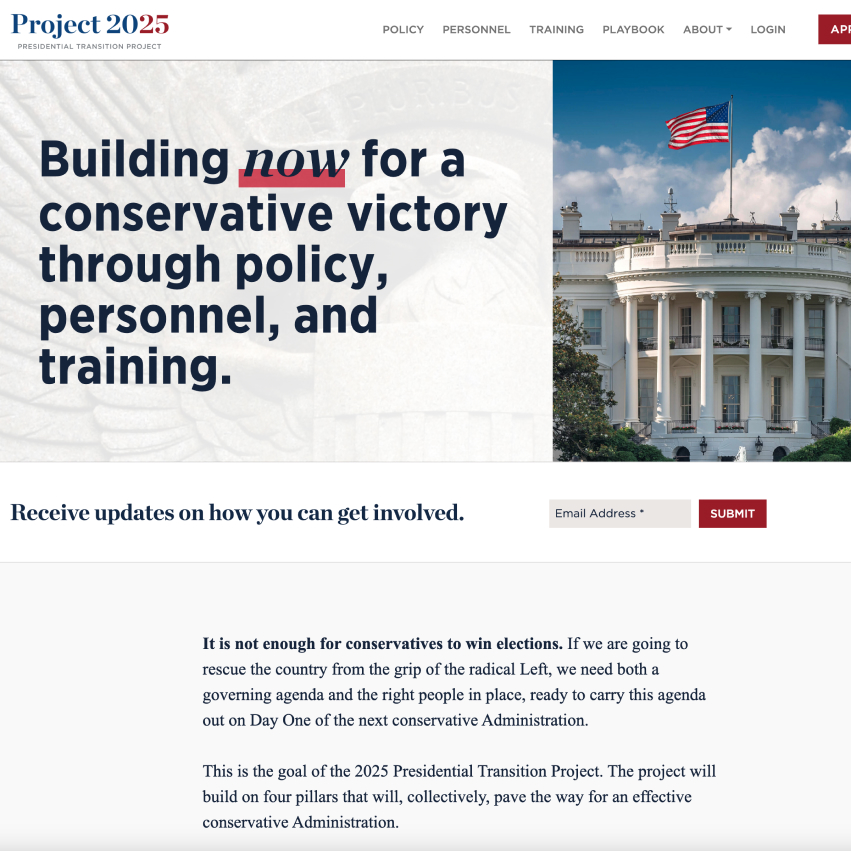What needs 'condemned' exactly?
Hard for any of them to say. It is 30 chapters and nearly 1000 pages. It is not a bunch of bullet points. For example, This is a small snippet of DEPARTMENT OF
THE TREASURY (I thought maybe I could find some concrete spending plan or debt reduction).
******************
THE “EQUITY” AGENDA
Under the Biden Administration, the Treasury Department has appointed a
Counselor for Racial Equity, established an Advisory Committee on Racial Equity,
and created an o"ce for Diversity, Equity, Inclusion, and Accessibility. All these
should be eliminated. Treasury has created several new o"ces to promote “equity”
and has made this its first of five strategic goals in its Fiscal Year 2022–2226
Strategic Plan. “Equity” is identified as a cross-cutting theme in 15 of 19 of the
plan’s objectives.
The avowed purpose of these initiatives is to implement policies that deliberately favor some races or ethnicities over others. The casual acceptance and
rapid spread of racist policymaking in the federal government must be forcefully
opposed and reversed. The next conservative Administration should take a"rmative steps to expose and eradicate the practice of critical race theory and diversity,
equity, and inclusion (DEI) throughout the Treasury Department.
These steps will include:
l Identify every Treasury o"cial who participated in DEI initiatives and
interview him or her for the purpose of determining the scope and nature of
these initiatives and to ensure that such initiatives are completely ended.
l Make public immediately all communications relating to the work of the
Treasury’s critical race theory and DEI initiatives.
l Treat the participation in any critical race theory or DEI initiative,
without objecting on constitutional or moral grounds, as per se grounds for
termination of employment.
l Expose and make public all training materials and initiatives designed to
single out any race, ethnicity, or sex for special treatment.
The Administration should eliminate the 25-member Treasury Advisory Committee on Racial Equity.
CLIMATE-RELATED FINANCIAL RISK
Treasury has created a new departmental o"ce, “Climate Hub,” and has made
“combating climate change” one of the Biden Treasury Department’s top five
— 709 —
2025 Presidential Transition Project
principal goals. The next Administration should eliminate the Climate Hub O"ce
and withdraw from climate change agreements that are inimical to the prosperity
of the United States.
The Climate Hub o"ce “coordinates Treasury’s work to inform, guide, incentivize, and mobilize financial flows for climate mitigation and climate adaptation
and supports the broader alignment of the financial system with a path to netzero emissions by mid-century.“71 According to the Biden Administration’s Fiscal
Year 2022–2026 Strategic Plan for Treasury, the fourth of five Treasury strategic
goals reads:
Combat Climate Change
The United States and the world face a climate crisis and a narrowing
window of action to avoid the worst impacts of climate change. At the same
time, the transition to a low carbon economy represents a historic economic
opportunity for the U.S. and global economy. The U.S. federal government
must work alongside our domestic and international partners to respond
ambitiously to tackle the challenges of climate change, adapt to an already
changing climate, mitigate the risks, and position the global economy for
clean and sustainable growth.72
Yet history shows that economic growth and technological/scientific advance
through human ingenuity are by far the best ways to prevent and mitigate extreme
weather events. Moreover, virtually all of the initiatives that the Biden Administration has adopted would, even if successful, have a de minimis impact on changing
global weather patterns, in part because most nations—notably China—are not
cooperating with climate summits and international agreements. Virtually all
nations, for example, that signed the Paris Agreement73 have not met their treaty
obligations. Such routinely violated treaties weaken the U.S. economy with no o!-
setting societal benefits. To that end, the next conservative Administration should
withdraw the U.S. from the U.N. Framework Convention on Climate Change74 and
the Paris Agreement.
The next Administration should use Treasury’s tools and authority to promote
investment in domestic energy, including oil and gas. It should reverse support for
international public- (and private-) based e!orts promoting Environmental, Social,
and Governance75 and Principles for Responsible Investment,76 both of which have
badly damaged U.S. energy security.
OTHER REFORMS
U.S. Coast Guard and the Bureau of Alcohol, Tobacco, Firearms, and
Explosives. Congress should examine whether to return the Treasury’s former
— 710 —
Mandate for Leadership: The Conservative Promise
in-house law enforcement capabilities via the return of the United States Coast
Guard and the Bureau of Alcohol, Tobacco, Firearms, and Explosives. Bringing
these agencies back from the Department of Homeland Security and the Department of Justice, respectively, would allow Treasury, in the case of U.S. Coast Guard,
to increase border security via a vigilance with respect to economic crimes (for
example, drug smuggling and tax evasion).
U.S. Trade and Development Agency. Congress should eliminate the U.S.
Trade and Development Agency (USTDA). The USTDA is intended to help companies create U.S. jobs through the export of U.S. goods and services for priority
development projects in emerging economies. The USTDA links U.S. businesses
to export opportunities by funding project planning activities, pilot projects, and
reverse-trade missions while creating sustainable infrastructure and economic
growth in partner countries.
These activities more properly belong to the private sector. The best way to
promote trade and development is to reduce tari! and non-tari! trade barriers.
Another way is to reduce the federal budget deficit, and thereby federal borrowing
from abroad, freeing more foreign dollars to be spent on U.S. exports instead of
federal treasury bonds.
Other Issues. Many Treasury Department issues cut across multiple parts of
Treasury or other governmental agencies. Several are discussed in this chapter,
but not all can be covered here in depth. Other issues of concern include China,
cybersecurity, digital assets, digital services taxes, international debt defaults, Iran,
Social Security and Medicare Trust Funds and private sector pensions, sanctions
policy, and treasury auction and debt issuance

www.vox.com

www.project2025.org

